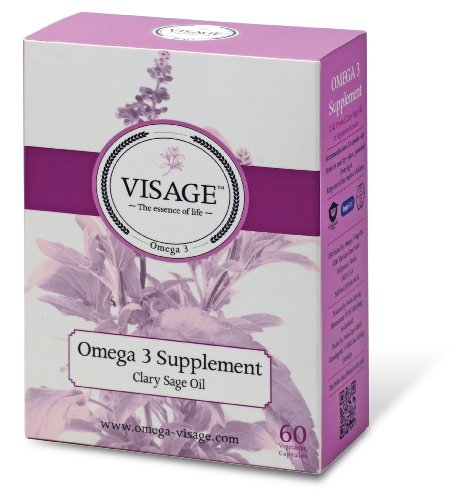


What is Omega 3? Omega 3 is a general term for a group of essential fatty acids. Although the body does not produce these fatty acids, they are essential for its proper functioning. These fatty acids have two sources: 1) vegetable source from sage oil, green leaves, and vegetable oils (ALA) and 2) marine from deep-sea fish and seaweed (EPA, DHA). Active ingredient: The oil is 100% natural through cold picklin pressed oil from the sage vegetable, in soft capsules. What does vegetable Omega 3 (ALA) contribute in its own right, independently of its transforming into long Omega 3 acids (EPA, DHA)? Omega 3 from sage has many benefits, including the following: 1. Helps maintain a healthy heart and brain. 2. Helps maintain healthy skin and hair. 3. Combats inflammatory diseases. 4. Assists in proper development of fetuses and babies. 5. Helps the digestive system absorb calcium. Two important facts about Omega 3 from sage: 1. Mother's milk provides vegetable Omega 3 (ALA) to nursing babies. 2. Substitutes for mother's milk are also required to include vegetable Omega 3 (ALA). What are the advantages of sage oil? 1. Safe to use for all age groups. 2. It is 100% natural. 3. There is no risk that it contains heavy metals or toxins. 4. Does not oxidize easily. 5. Not defined as an allergen. 6. Gluten-free. 7. Contains natural vitamin E and natural coenzyme Q10 in oil. 8. The Omega 3 to Omega 6 ratio is 3:1. 9. Contains natural vegetable sterols in oil. 10. Contains natural Omega 9 (oleic acid) in oil. 11. Contains natural antioxidants in oil. 12. Contains natural anti-inflammatory and antibacterial substances in oil. Recommended dosage: two-three capsules per day after meals; one capsule after breakfast and two after supper are recommended. Four-five capsules per day are recommended for chronically ill patients. Kosher Certification: the capsule has rabbinate kosher certification (it contains beef gelatin)
Trustpilot
2 weeks ago
1 month ago